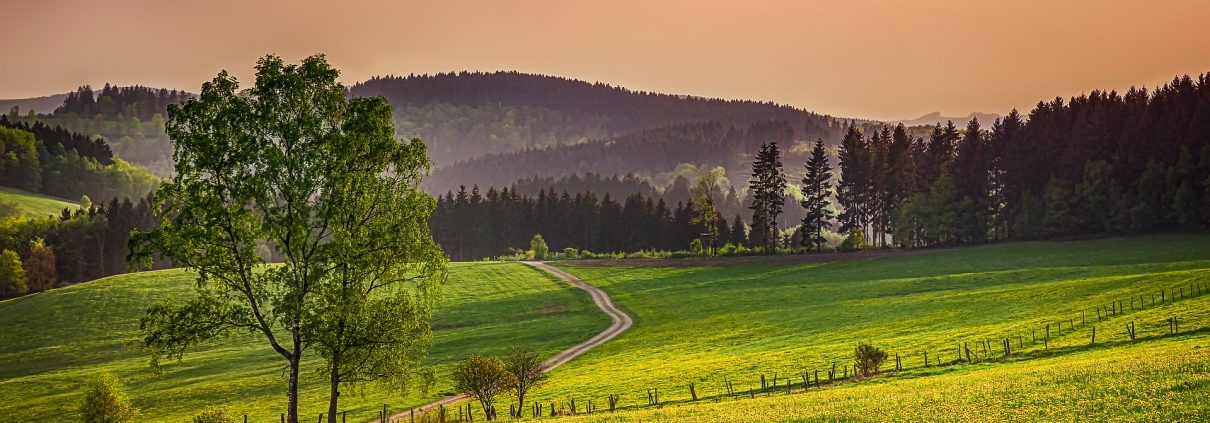5 Mistakes to Avoid When Buying Land
Buying land forces you to make a lot of choices. Unfortunately, people who don’t have much experience buying land rarely know how to avoid common mistakes. And even experienced buyers can make mistakes.
Check out these pitfalls to avoid so you can make informed decisions the next time you are in the market buying land.
1. Choosing the Wrong Type of Funding Source
You have several funding options when buying land. If you have exceptional credit, then you might find that a conventional bank or credit union will lend you money.
Another option is going through the Farm Credit System. “The Farm Credit System (FCS) in the United States is a nationwide network of borrower-owned lending institutions and specialized service organizations. The Farm Credit System provides more than $304 billion in loans, leases, and related services to farmers, ranchers, rural homeowners, aquatic producers, timber harvesters, agribusinesses, and agricultural and rural utility cooperatives.
Congress established the Farm Credit System in 1916 to provide a reliable source of credit for farmers and ranchers. Today, the Farm Credit System provides more than one-third of the credit needed by those who live and work in rural America.”
Don’t assume that you have to rely on a bank and a loan, though. Crowdfunding has become a popular alternative to traditional investing.
Explore as many options as possible to make sure your funding best meets your needs.
2. Accepting High Interest Rates That Increase the Land’s Price
If you decide to get a loan for buying land, look for a lender that will give you a low interest rate. The more interest you have to pay, the higher the land’s overall price becomes.
Putting in extra effort to find a low-interest loan can help you save a lot of money. Even a couple of percentage points will affect how much you spend.
Land loans usually have short repayment schedules, so you will need to repay the lender within five years. Let’s say you borrow $100,000 at 3% interest. At the end of five years, you will have spent about $7,812 on interest.
At 6%, the total interest comes to nearly $16,000. The extra 3% more than doubles your interest payments.
Fight for a lower interest rate when buying land. Otherwise, you will find it much more difficult to repay the loan or earn a profit from the property.
3. Not Inspecting A Property Before Buying Land
Never purchase land before you have it inspected by a professional. The features that you look for will depend on how you plan to use the land. For example, you need to test the soil before you can turn the property into a farm.
Other essential factors to inspect before buying land include:
- Access to the property
- The area’s topography
- How the neighbors use their land
- Whether the land is in a flood plain
Additionally, you need to hire a surveyor who can show you the property lines. Don’t rely on an old map that shows where one property ends and a different one begins. An inaccuracy could eventually cost you a lot of money, so don’t take any risks.
4. Failing to Get the Right Insurance Policies
Don’t start buying land without getting insurance policies that will protect your investment. Talk to your land consultant to determine what policies you’ll need. Then, determine whether you need additional policies designed for specific uses of land. Below are a few common types of policies landowners can take out.
Title Insurance
Ideally, your property has an accurate history showing who owns the land. Mistakes happen, though. With title insurance, you get protection from:
- Delinquent tax bills from former owners
- Unpaid mortgages from former owners
- Forged documents
- Hidden mortgages
- Clerical errors
- Easement problems
- Claims from the children or spouses of previous owners
Buying land without getting title insurance is a big gamble. You could lose ownership without getting anything in return.
General Liability Insurance
Anyone who gets hurt on your property can sue you for damages. It’s a problem that all landowners face. The possibility of injury becomes even more significant when you buy land for hunting or agricultural uses.
General liability will pay for your legal protection. Instead of paying a high-priced lawyer, you give your insurance company a relatively small amount of money to avoid court.
Property Insurance
If you plan to build structures or store equipment on your land, then you should property insurance. Property insurance can help cover structures and equipment like barns, vehicles, and tractors.
Crop Insurance
Investing in agriculture can lead to exceptional long-term profits. Unfortunately, you can’t predict how the weather several years from now will affect your crops. Crop insurance can help protect you from significant financial loss caused by unforeseen conditions.
Talk to crop insurance providers about Revenue Protection and Revenue Protection – Harvest Price Exclusion policies to help you decide which option works best for you.
5. Working With the Wrong Type of Agent When Buying Land
Don’t make the mistake of thinking that all real estate agents have the same level of experience in doing land transactions – in fact, most have never done a land transaction. Land transactions are different from buying a home. When buying land, you need to find a land consultant in your area with experience working in your market doing the type of land transactions that are similar to the type of land you are trying to buy.
You can easily ensure that you get help from a qualified land professional by using an agent with the elite Accredited Land Consultant (ALC) Designation.






